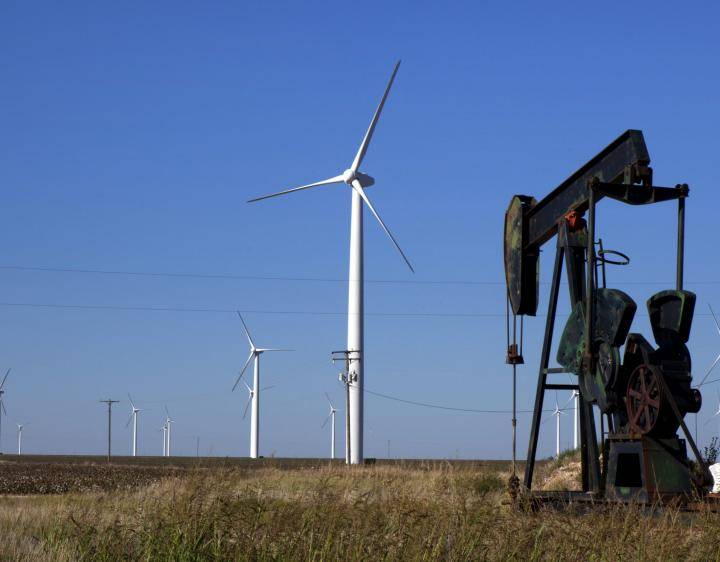
At the risk of stating the obvious: there is a lot going on at the moment. The COVID-19 pandemic is changing the very fabric of society. We’ve had to carefully re-evaluate every position we hold in the last two months.
Usually our focus on long-term signals makes it relatively easy to screen out the noise, which tends to be shorter term. At the moment, even the noise is long-term. Picking which trends will and won’t stick needs unusual amounts of insight. You can draw a wide range of conclusions from most of the datapoints.
And even among all the startling datapoints we are currently seeing, one stands out. The price of West Texas Intermediate, the US oil benchmark, actually turned negative on 20 April. At the lowest point, you would have had to pay US$37.63 to get someone to take a barrel off your hands.
This is something of an apparition. The negative prices come about because of a technicality in futures contracts. But the underlying price of oil is extremely low – somewhere under US$20.
So what is the signal, and what is the noise?
I’d be surprised if you couldn’t guess what we think the signal is. The end of the Age of Oil is in sight.
The COVID-19 crisis has led to an extreme reduction in demand at this point in time. Much of that demand will coming roaring back. But before the crisis hit, the future for fossil fuels was already looking shaky at best. The cost of unsubsidised renewable energy keeps on falling. And oil’s killer use-case, for personal mobility, is about to be destroyed by electric cars.
So the pandemic creates a real problem for oil investors. The long term outlook for oil stocks is bleak. And now the short term is even worse. So when do you want to own it? The signal is that the petroleum era is ending.
Of course we think like this. WHEB’s core thesis is based on a transition to a zero-carbon sustainable economy. But the beauty of any market is in its breadth. It takes many views to fix a price. Even now it’s not hard to find oil industry commentators who are drawing different conclusions from that sub-US$20 price.
They don’t see an end to the oil epoch just yet. Their arguments come in two broad categories.
The first group, I will call “ostrich” arguments, as they ignore half the picture. As amazing as it might seem, much of conventional analysis of the oil price doesn’t refer to the impact of renewable energy at all. These analysts believe the oil market is simply out of balance.
Particularly in the USA, there is a tiny minority who refuse to even acknowledge the climate crisis. The larger part is actually a specific phenomenon amongst oil industry experts. For more than one hundred years, demand has just not been something oil analysts focus on. All their analysis is on supply side issues such as OPEC negotiations and discipline, wider political considerations, storage capacity and refinery levels.
In the short or medium term, some of these ostriches may be right. A combination of supply factors, combined with returning demand, may lift the price in the short term. That might give the impression that nothing fundamental is changing.
But at some point, the finer workings of the oil industry will no longer matter. The important analysis will all be on demand, which is likely never to return to previous levels. We may already be there. It feels like there are still plenty of ostriches who will be surprised by this.
Sticking with the avian theme, the second category could be called “hawkish” arguments. For these more cynical observers, the signal is that the low price will itself prolong the fossil fuel era.
We’re in an economic crisis, run these arguments. Faced with recession or even a possible depression, who will turn down cheap energy, even if it comes with carbon emissions and environmental degradation attached? Who will sacrifice their own economic growth to solve environmental problems that we all share?
The answer, increasingly, is a lot of people. The EU’s commitment to its Green Deal, in face of obstruction and opposition by the fossil lobby, is a political example of this. But this isn’t just political. There is already plenty of evidence that the COVID-19 is changing social attitudes. Sustainability concerns have moved up everyone’s agenda in recent years, and the pandemic has reinforced this.
In the end though, this argument will fail on hard economics rather than moral choices.
Fossil energy prices may fall, but renewable energy prices will continue to chase them downwards. The current cost advantage can never be sustained. And it won’t be great enough to outweigh the volatility that comes with oil.
These signals were there before the pandemic. They have become even clearer now. The rest is just noise.
